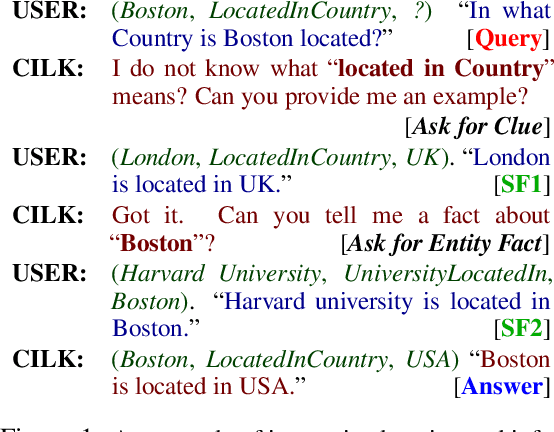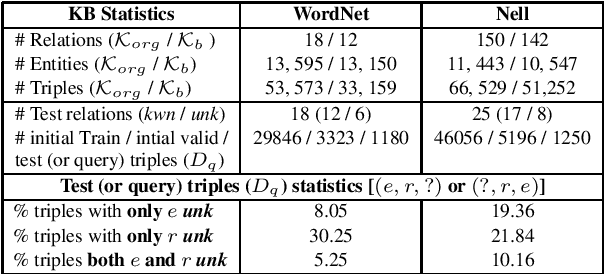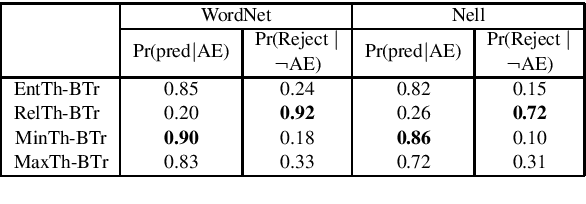Lifelong and Interactive Learning of Factual Knowledge in Dialogues
Paper and Code
Jul 31, 2019



Dialogue systems are increasingly using knowledge bases (KBs) storing real-world facts to help generate quality responses. However, as the KBs are inherently incomplete and remain fixed during conversation, it limits dialogue systems' ability to answer questions and to handle questions involving entities or relations that are not in the KB. In this paper, we make an attempt to propose an engine for Continuous and Interactive Learning of Knowledge (CILK) for dialogue systems to give them the ability to continuously and interactively learn and infer new knowledge during conversations. With more knowledge accumulated over time, they will be able to learn better and answer more questions. Our empirical evaluation shows that CILK is promising.
* Accepted in SIGDIAL 2019
 Add to Chrome
Add to Chrome Add to Firefox
Add to Firefox Add to Edge
Add to Edge